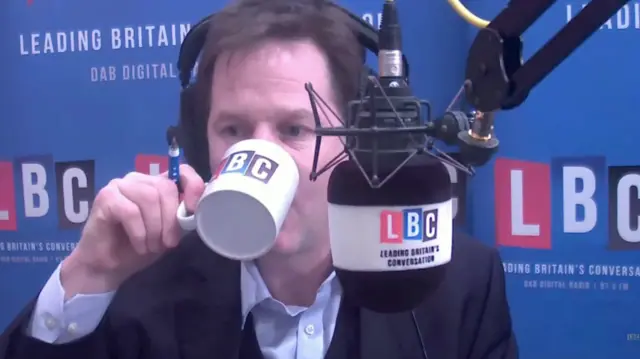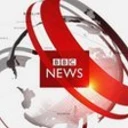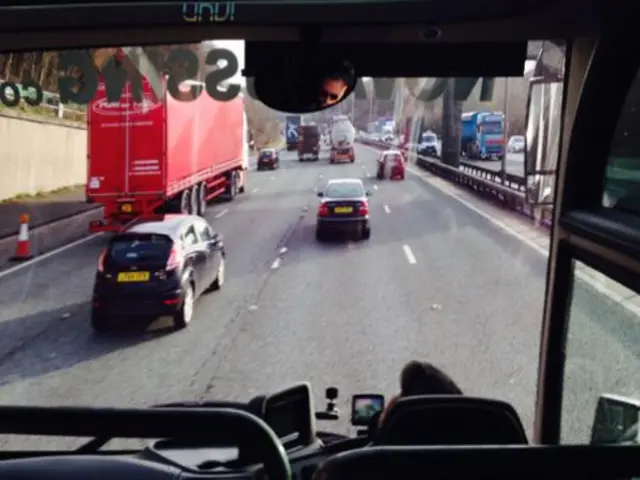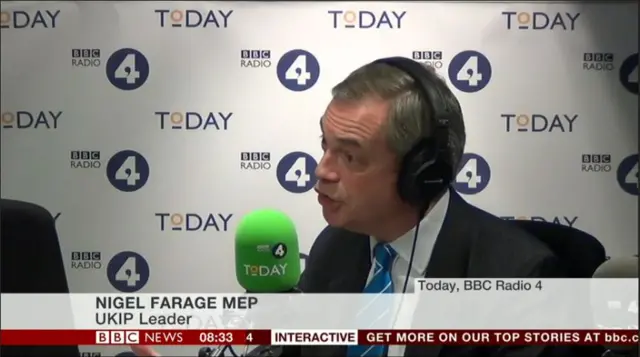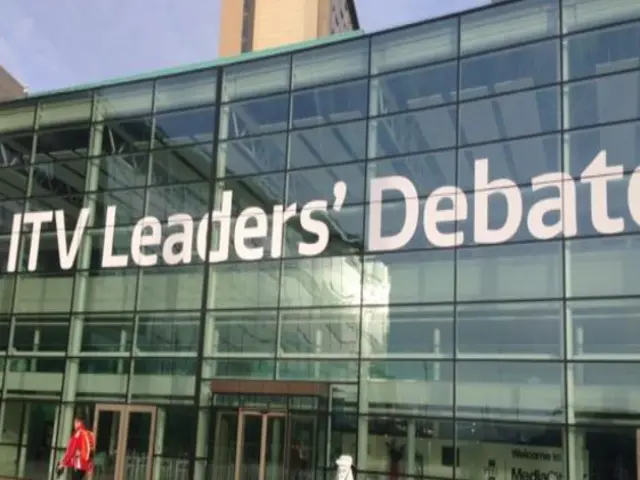Rainbow coalitionspublished at 09:32
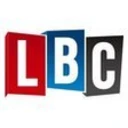 LBC
LBC
On a scale of one to 10 how grumpy was Gordon Brown when you met him after the last election, LBC presenter Nick Ferrari asks Nick Clegg. The Lib Dem leader says he was "good tempered and perfectly gracious". At one point Mr Brown - who was then prime minister - was very adamant he could create some kind of rainbow coalition, he reveals, but Nick Clegg says he told him it wouldn't work. It wouldn't work this time round either, he adds.
